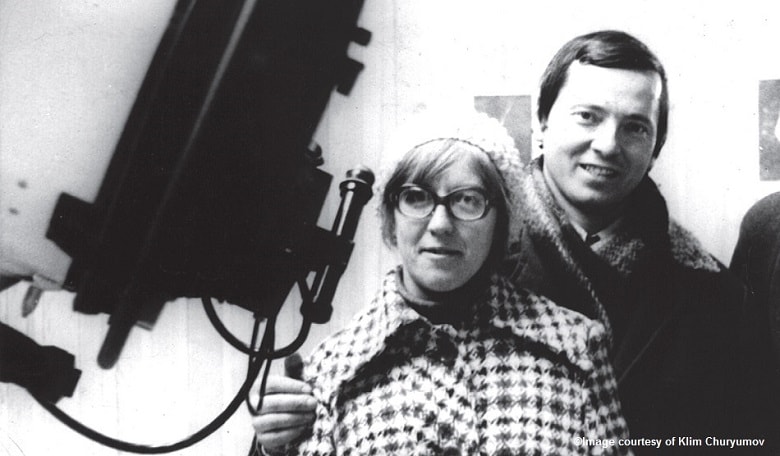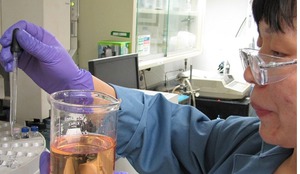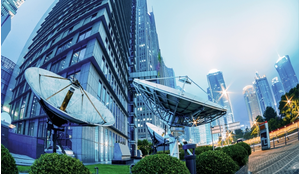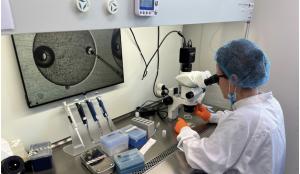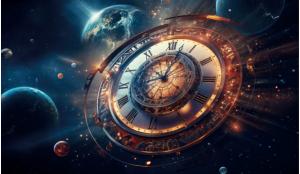I was 16 when Yuri Gagarin went to space.
I remember the day: we had a maths test at school and, since I had finished early, I stepped outside for some fresh air.
There was a loudspeaker in the street broadcasting the news. It was very coarse – it clearly hadn’t been used in a long time. When I heard that a man had just flown to space, I went running and screaming back into the class and announced the news to my cheering classmates.
Those were the days when we really started conquering space. One way or another most youngsters dreamt of becoming cosmonauts or having something to do with space – it was shrouded in so many enticing mysteries. Personally, I am a bit of a coward and afraid of heights so becoming a cosmonaut was out of the question.
I went to study astronomy in Kiev State University: I was fascinated by the famous Soviet astronomer Sergei Konstantinovich Vsekhsvyatsky and his work with comets. In those days, the universal interest in space meant that astronomy was not an unusual profession and there was stiff competition to join the faculty.
I was a first year PhD student when we made a field trip to Almaty to observe short period comets. Klim Churyumov was the head of the expedition. After we analysed the data and realised that we had discovered a new comet, I returned to Almaty for further observations.
Svetlana Gerasimenko and Klim Churyumov in Kourou, French Guiana, just before the launch of the Rosetta spacecraft in March 2004
After my PhD I was invited to Dushanbe to the Astrophysics Institute of Tajikistan Academy of Sciences, where I still work today. Klim and I have not worked together since our discovery but we remain friends.
Discovery of the comet did not really change much in my life. To be honest I pretty much forgot about it until the comet was chosen as a target destination for the Rosetta mission. Although my family is very proud to have a comet named after it, none of my three children have followed me and my husband into the profession.
I have also been honoured by having an asteroid named after me by the famous asteroid discoverer, Nikolai Stepanovich Chernykh, who worked in the Crimean astrophysics laboratory.
When I first took an interest in astronomy, I never expected my life to turn out this way. Even in the days when ‘our’ comet was discovered, I could never have imagined that it would become a ‘superstar’ and draw such global attention.
I am in awe of the clockwork precision of Philae’s landing on the comet – the computations which made it possible are mind boggling and the information gathered by its on-board equipment will give immensely valuable material for scientific analysis. Whether people recognise it or not, space affects all of us.





